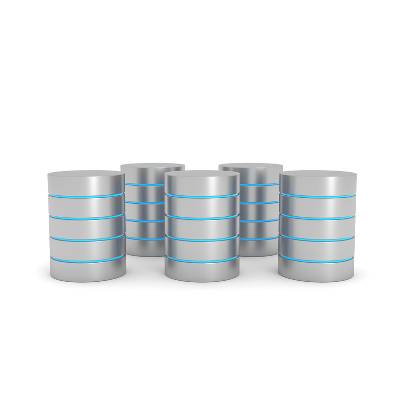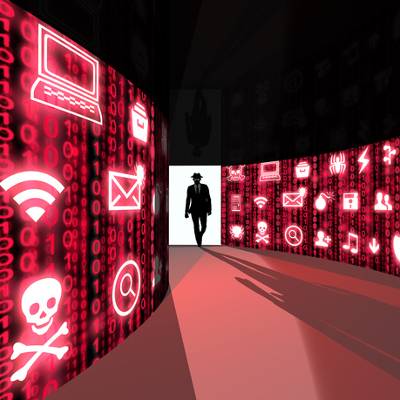It turns out that the old adage “iron sharpens iron” is true and it applies to the modern workplace. This, according to a new study by Harvard Business Review, which found that the productivity of a worker can be enhanced by an average of ten percent simply by having them be in close proximity to someone who’s more productive than they are.
Macro Systems Blog
The purpose of an internal IT department is, in theory, twofold: first, they are supposed to strategize a future for the company’s information technology, with the secondary responsibility of troubleshooting and tending to the technological issues a business faces. However, the reality is that many IT departments find themselves with no time to innovate, as they are swamped under service requests for technical issues.
You only care about how long your device’s battery lasts when it’s in the red, and at that point, it’s almost too late to find somewhere to charge. In situations like this, your first thought is, “Where is the nearest outlet?” Subsequently, your next thought might be, “How can I charge the battery faster?”
What you watch on TV says a lot about you; so much so, that you might be creeped out if we told you there are others who know exactly what you watched, without your consent. Sound too invasive to be true? Well, for the 11 million owners of Vizio televisions, this practice has been going on for some time now.
Updating your company’s software is a big responsibility that shouldn’t be overlooked. When it comes down to it, applying security patches and updates are some of the best preventative measures you can take to ensure the safety of your company’s data. Do you have a plan in place to handle all of your technology updates, or are you going about it haphazardly?
How often do you look at a workstation in your office and say, “Wow, I should replace that soon!” Old equipment is vulnerable to all sorts of performance issues, and if you wait too long to replace it, you might be dealing with troublesome downtime and wasted capital. Plus, older hardware is often harder and more expensive to replace. Thankfully, there’s a service that’s capable of changing the way that you procure new hardware, including workstations, server units, network components, and so much more.
There’s an undeniable connection between success and emotional attachment. Marketers know this, which is why you see so many commercials meant to manipulate your heartstrings. The point of these stirring advertisements is to engage consumers on a deeper level, and thus, create brand loyalty. It stands to reason that the same strategy can be applied to retaining and engaging your employees.
How much of managing your IT resources are your employees responsible for? SMBs will often have their employees service their own workstations to some degree, primarily because they don’t have the resources to devote entirely to IT management and maintenance. This lack of IT talent can largely be made up for by training your employees on basic computer tasks.
Fans of Google’s Android OS have some tough choices to make when selecting a smartphone, seeing as the software runs on so many devices of varying quality and price points. For the purposes of this review, we will take a look at and compare two current flagship devices: Google’s Pixel and Samsung’s Galaxy s7.
As the business owner, are you the only person in your office who manages your company’s vendor relationships? Chances are that this is a huge responsibility, and one that consumes a significant portion of your time. While communicating with vendors is important for resolving issues or learning more about the service offered, it’s still a pain that you shouldn’t have to deal with.
On average, how many people do you think are affected by identity theft? According to the United States Bureau of Justice, about five percent of its population; about 11.7 million people, are victims of identity theft. Their methods might vary, but the one thing that all victims have in common is that they hold information that presents value to hackers. Among these victims could be a few that hit close to home: your employees.
Encryption has become a very important part of maintaining an acceptable standard of security while browsing the web and storing data. Large enterprises and organizations have been using encryption for a long time, and even the average consumer uses encryption each and every time an online purchase is made. Did you know that the protection afforded users by encryption is made possible thanks to security certificates?
Data might be the single most important asset of any business, but you would be shocked to hear about how many organizations don’t consider data loss to be a prominent threat. The fact remains that it doesn’t take an immense disaster to wipe out an entire infrastructure, and that you should expect the worst to happen regardless of how unlikely it is to do so.
Regardless of what industry a company is classified under, they all are responsible for upholding particular standards to ensure compliance with industry regulations. However, according to the 2016 State of Compliance survey, a shockingly high number of organizations were shown to be a bit fuzzy on their requirements.
When it comes to data breaches, some users don’t know or suspect one has occurred until it’s far too late to do anything about it. Sometimes viruses or malware will lurk on a device until certain criteria are met. Others will execute immediately. We’ve listed some of the potential threats that you will encounter in the business world, as well as what you can do about them.
For business owners looking to streamline operations and get the most out of their technology, a new survey by TSO Logic analyzed 10,000 customer physical servers and 25,000 virtual machines and concluded that 45 percent of existing VMs would run more efficiently in the cloud. A finding like this should be reason enough for companies to reevaluate their current IT setup.






















